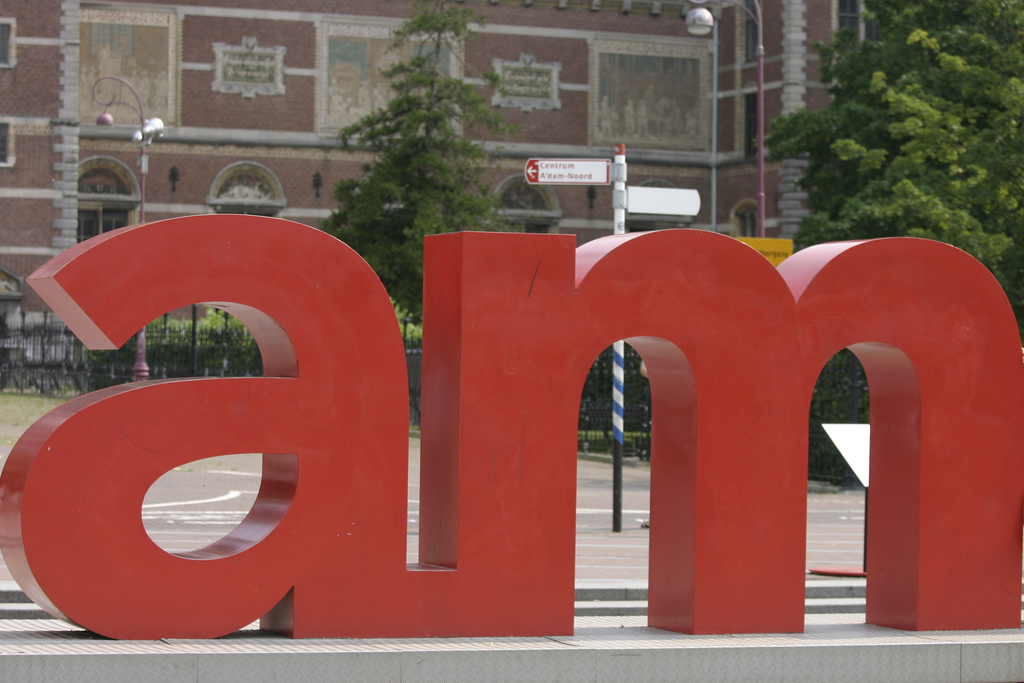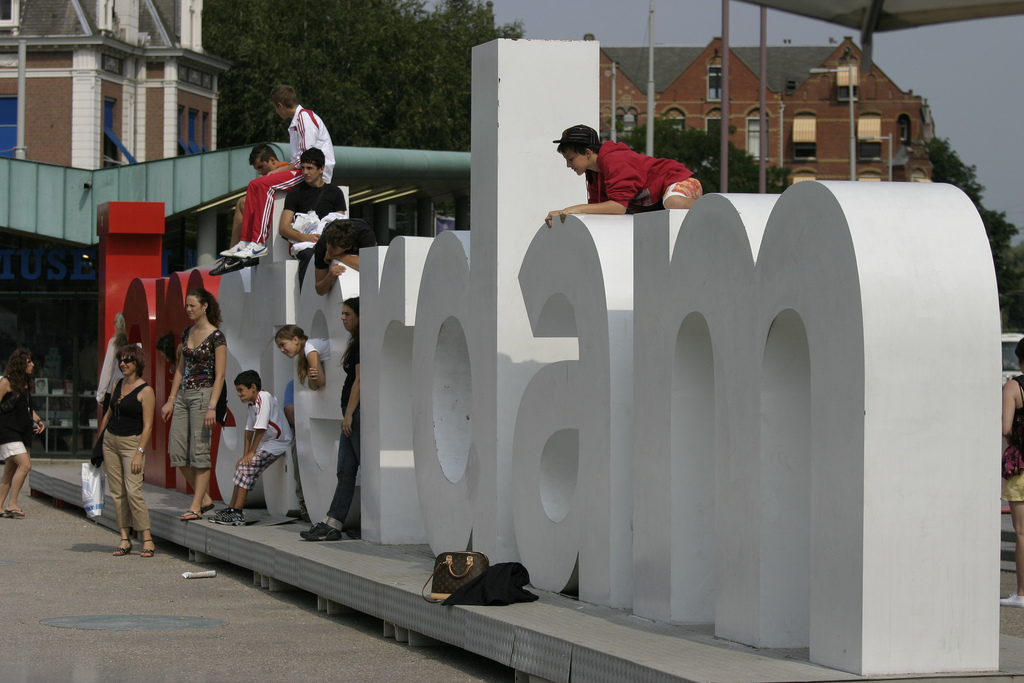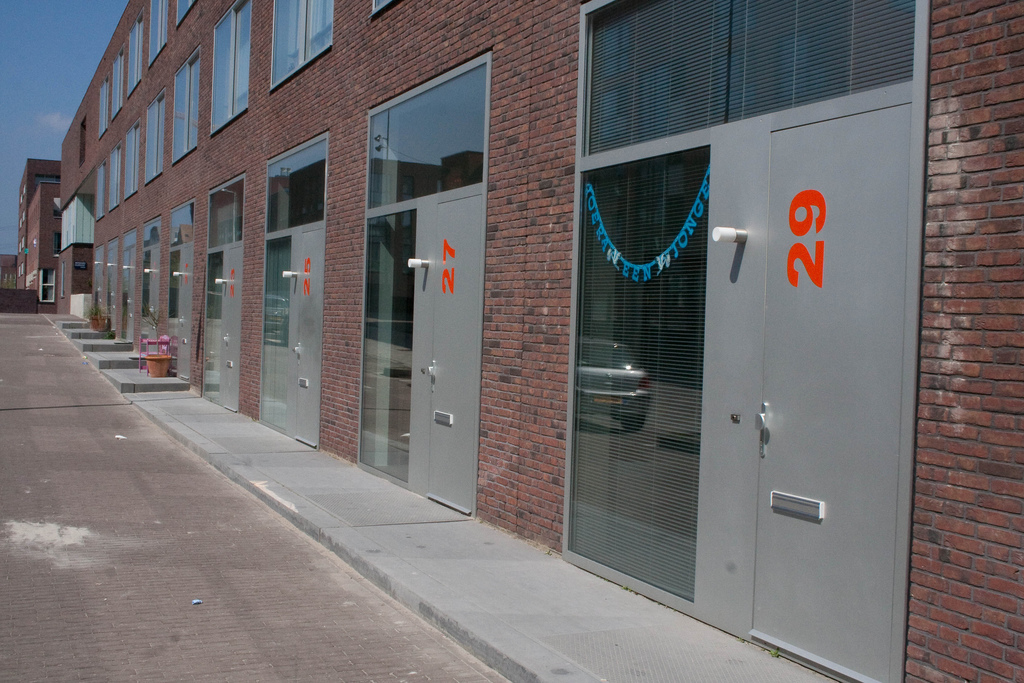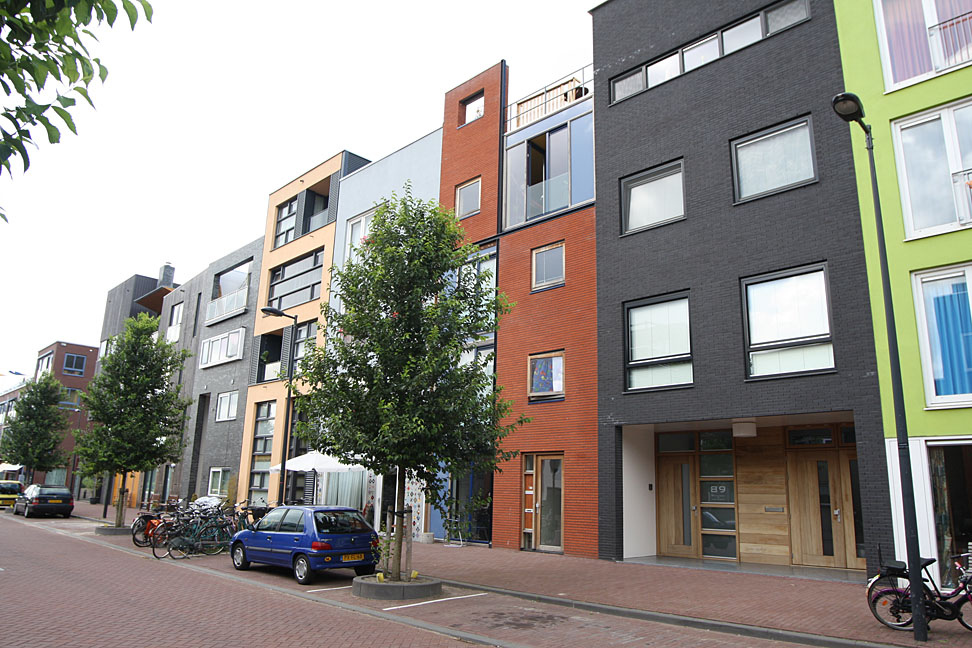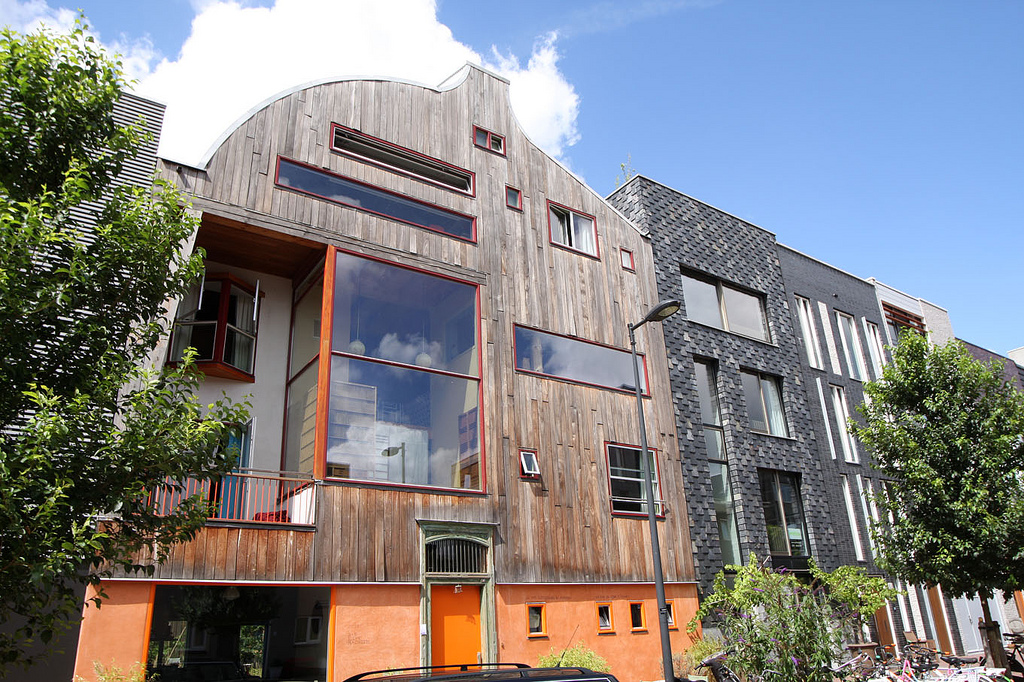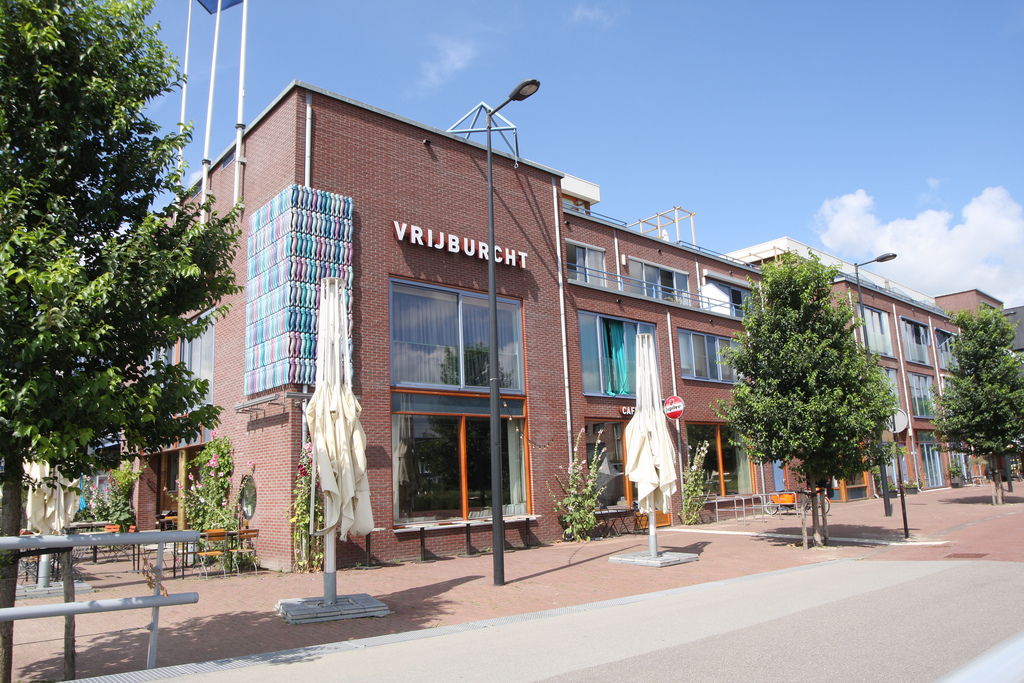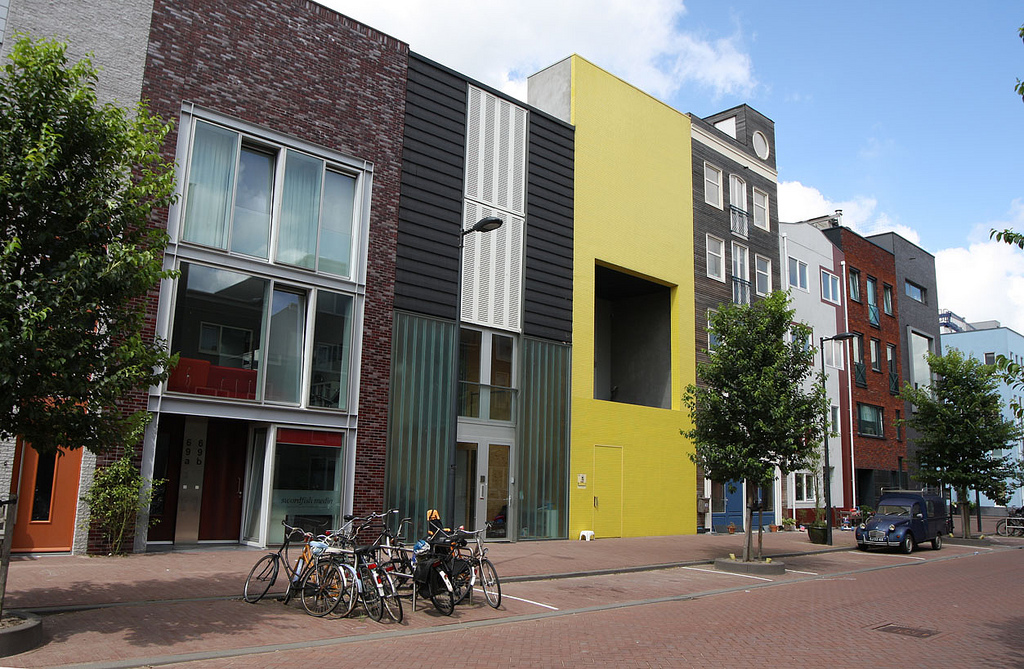It is rather common to think about the Netherlands as a country determined by highly skilled management of water. A substantial part of this country lies below the sea level. For most of the tourists Holland means: good cheese, tulips and bicycles. I would like to convince you that Holland is not just flowers and water. It is also a country of modern architecture and advance engineer solutions.
To see a real housing innovation you need to visit IJburg- an artificially constructed island on the east of Amsterdam. I went to this island twice and I was a witness of progress of this complex project. When I visited IJburg last time it was still under construction but I was able to admire impressive buildings.
Walking the newly constructed streets of IJburg was a powerful experience to me. First of all this is a real island surrounded by the sea and swept by the strong north winds. Everywhere on this island you can smell this salty scent of the sea, beach, shells and sand. You can hear its noise and from most of the places you can see the sea itself. This is an impressive project not only from the engineering point of view but also in terms of sociology and mobility. The designers of this project planned to construct a variety of buildings, including social housing for the poorest and free space for the richest so they could build their dream houses there.
The whole island is very spacious, the streets are wide, the generosity of this project is observable at every corner. It is exceptionally well connected to the city center of Amsterdam with the tram and through the system of bridges. In about 15 minutes the tram arrives to the Central Station which makes this place really convenient to live in.
Any problems?
Yes, at least one that I am aware of. The island was artificially constructed which resulted in lack of the natural environment, in terms of flora and fauna. Surprisingly, when I went to IJburg for the first time the most visible absence of fauna were birds. Seriously! Many of the lamps, fences, bins and tram stops were covered with spiderwebs. The shortage of birds allowed to develop the spider population excessively. This was a guided tour with some of the sociologists and architects employed for this project and I remember that they were surprised with this problem. “You can plan everything in tiny details”- they said, “to be eventually surprised with something as small as spiders”.
I would love to see IJburg again, someday.
Credits: all pictures were found on flickr.com published on license Creative Commons.

